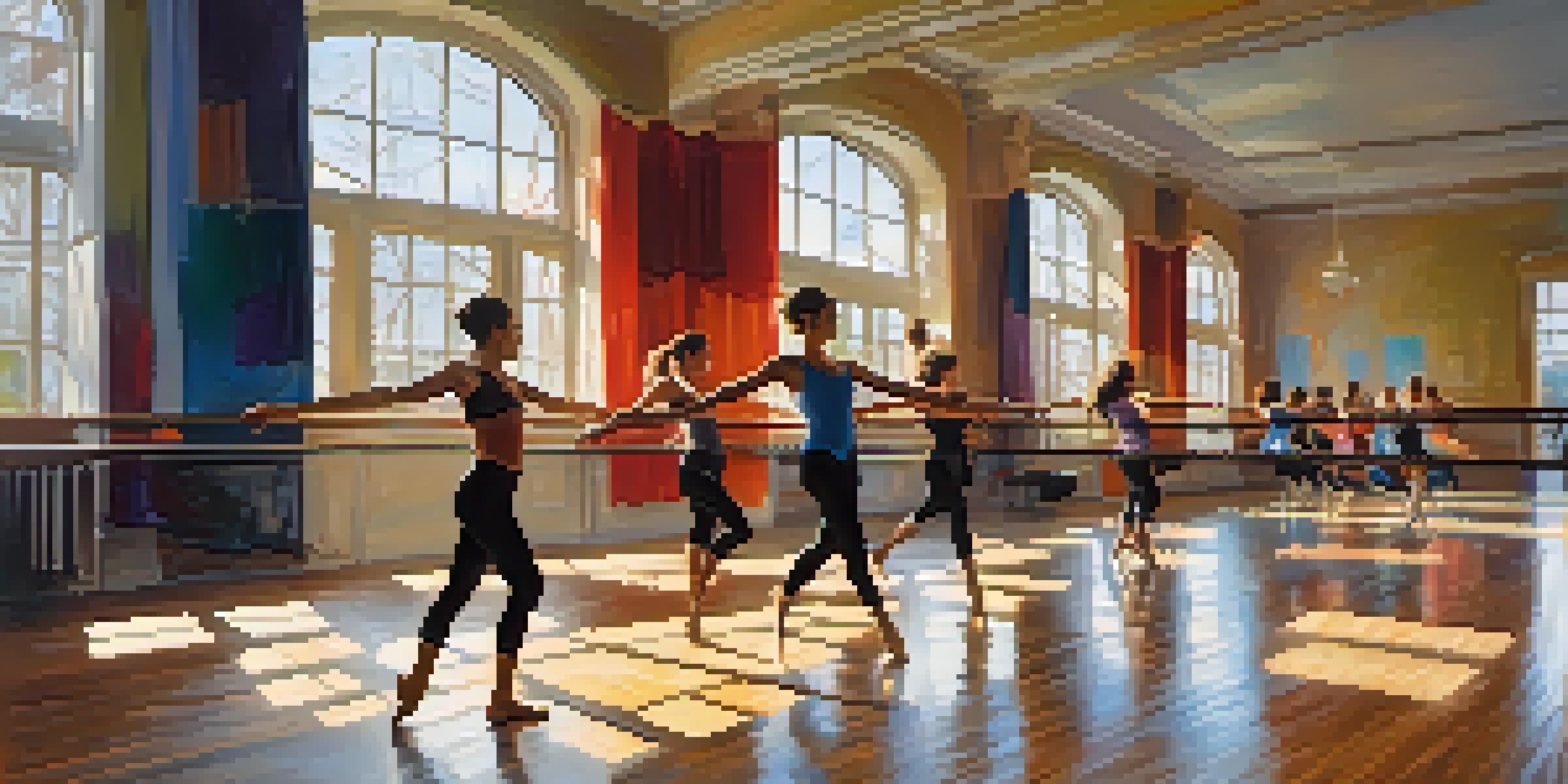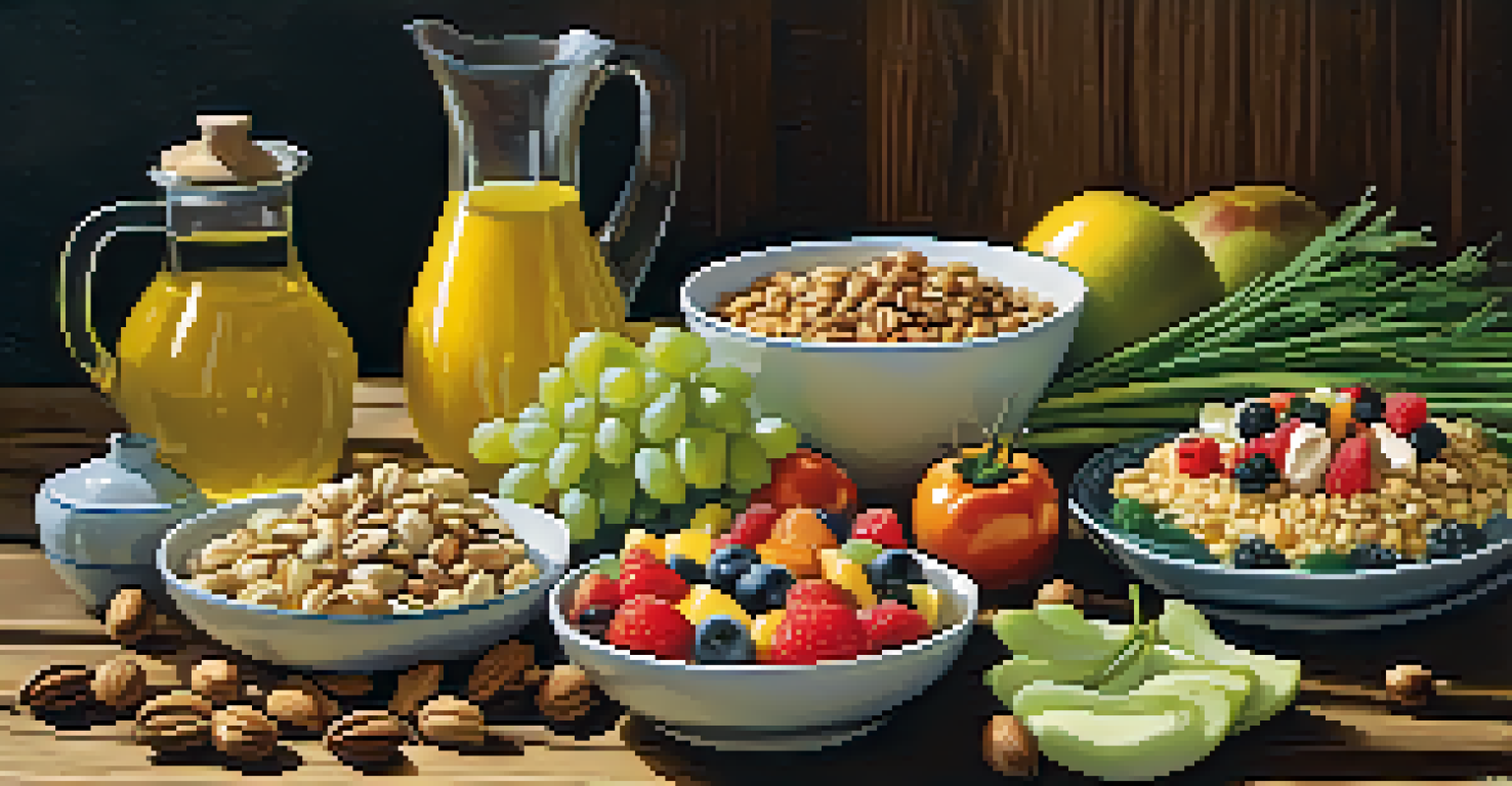Nutrition Myths: Debunking Common Misconceptions for Dancers

Myth 1: Carbs Are the Enemy for Dancers
Many dancers believe that cutting carbs will help them stay lean. However, carbohydrates are actually essential for providing the energy needed during intense rehearsals and performances. Think of carbs as the fuel in your tank; without them, you won’t be able to perform at your best.
Let food be thy medicine and medicine be thy food.
Complex carbohydrates, like whole grains, fruits, and vegetables, are particularly beneficial as they release energy gradually. This steady energy supply helps maintain stamina throughout long dance sessions. So, instead of fearing carbs, dancers should embrace them as a crucial part of their diet.
Moreover, when dancers eliminate carbs, they often end up feeling fatigued and less motivated. It’s all about balance—incorporating the right amount of healthy carbs can enhance performance and recovery.
Myth 2: You Need to Be on a Strict Diet to Succeed
The idea that dancers must adhere to strict diets is a myth that can lead to unhealthy relationships with food. In reality, a flexible and varied diet can provide the nutrients necessary for peak performance. It’s important to listen to your body and fuel it with what it craves.

Instead of limiting yourself, think about incorporating a range of foods that support your energy needs. For instance, balancing proteins, fats, and carbs can help you feel satisfied and nourished. Remember, food is not just fuel; it’s also a source of joy and social connection.
Carbs Fuel Dance Performance
Dancers should embrace carbohydrates as essential energy sources that enhance stamina and performance.
Dancers should focus on wholesome choices and enjoy their meals without guilt. A sustainable approach to nutrition will lead to better long-term results than a short-lived strict diet.
Myth 3: All Fats Are Bad for Dancers
Many dancers shy away from fat, thinking it will make them gain weight. However, healthy fats are vital for overall health and can even support a dancer's performance. Fats, particularly unsaturated ones from sources like avocados, nuts, and olive oil, provide essential fatty acids and help with nutrient absorption.
You are what you eat, so don't be fast, cheap, easy, or fake.
Including healthy fats in your diet can also promote brain health and hormone production, both of which are crucial for dancers. For example, omega-3 fatty acids found in fish can help reduce inflammation, aiding recovery after rigorous dance sessions.
So, rather than fearing fat, dancers should focus on choosing the right types. Incorporating healthy fats can enhance performance and provide sustained energy.
Myth 4: Skipping Meals Helps with Weight Control
It’s a common belief that skipping meals will help you lose weight, but this can be counterproductive, especially for dancers. When you skip a meal, your body goes into survival mode, slowing down your metabolism and making it harder to maintain a healthy weight. Instead, regular meals help keep energy levels stable.
Dancers need consistent energy to fuel their bodies for rehearsals and performances. Skipping meals can also lead to overeating later, as hunger builds up. Eating smaller, nutrient-dense meals throughout the day can keep your energy high and hunger at bay.
Balanced Diet Trumps Strict Diets
A flexible and varied diet fosters a healthy relationship with food, promoting better long-term results for dancers.
Ultimately, nourishing your body regularly is key to maintaining performance and health, not restrictive eating habits.
Myth 5: You Can Get All Nutrients from Supplements
While supplements can be helpful in certain situations, they aren’t a substitute for a well-rounded diet. Many dancers believe they can rely solely on vitamins and minerals to meet their nutritional needs. However, whole foods provide a complex array of nutrients that work together, which supplements often lack.
For instance, fruits and vegetables are packed with fiber, antioxidants, and phytochemicals that support overall health and performance. These compounds can enhance recovery, boost the immune system, and even improve mood.
Instead of focusing on supplements, dancers should prioritize a colorful and varied diet full of whole foods to ensure they’re getting all the nutrients their bodies need.
Myth 6: Hydration Isn't as Important as Food
While food is crucial for energy, hydration is equally important for dancers. Many underestimate the impact of dehydration on performance, thinking it only matters during hot summer months. In reality, staying well-hydrated helps maintain energy levels, focus, and overall physical performance.
Dehydration can lead to fatigue, decreased coordination, and even muscle cramps, which can hinder a dancer’s ability to perform. Drinking water throughout the day, as well as during and after practice, can help keep hydration levels up.
Hydration Is Key for Dancers
Staying well-hydrated is crucial for maintaining energy levels and optimal performance, not just during hot weather.
Incorporating hydrating foods, like fruits and vegetables, can also contribute to overall fluid intake. Remember, hydration is a key player in achieving peak performance.
Myth 7: Vegan or Vegetarian Diets Are Insufficient for Dancers
There’s a widespread belief that vegan or vegetarian diets can’t provide adequate nutrition for dancers. However, with careful planning, these diets can be rich in all the nutrients necessary for optimal performance. Many plant-based foods are packed with protein, vitamins, and minerals that support a dancer’s needs.
For instance, legumes, nuts, seeds, and whole grains can provide the necessary protein and energy. It's all about combining foods to ensure you’re getting all essential amino acids and nutrients. This balance can enhance recovery and performance just as well as an omnivorous diet.

With the rise of plant-based eating, many dancers are thriving on vegan and vegetarian diets. It’s crucial to educate yourself and find the right combinations that work for your body.
Myth 8: Eating Late at Night Leads to Weight Gain
A common misconception is that eating late at night will automatically lead to weight gain. In reality, weight gain is about total caloric intake and energy expenditure, not the timing of meals. Dancers often have late rehearsals or performances, making late meals a necessity for their busy schedules.
It’s important to listen to your body’s hunger cues, regardless of the time of day. A late-night snack can provide the necessary energy for recovery and help maintain performance levels. Focusing on healthy options, like yogurt or a piece of fruit, can make late-night eating beneficial instead of detrimental.
Ultimately, it’s not about when you eat, but rather what you eat and how it fits into your overall diet and lifestyle. Embrace your hunger, no matter the hour!